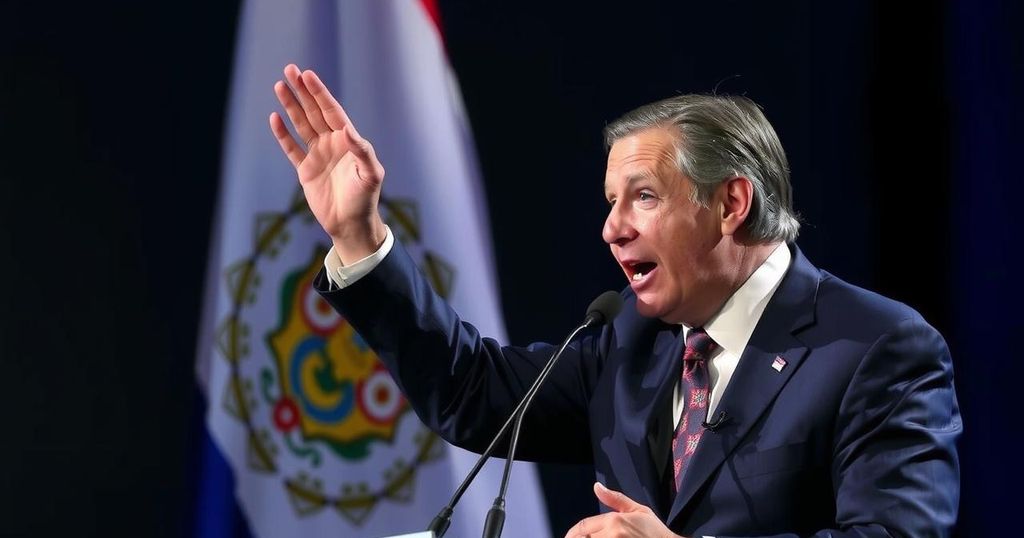Uruguay’s Presidential Runoff: A Shift from Conservative to Center-Left Leadership
Álvaro Delgado conceded defeat in Uruguay’s presidential runoff, allowing center-left candidate Yamandú Orsi to assume office. The election results reflect a shift in power after a brief period of conservative rule, as Orsi plans to maintain moderate policies and focus on collaboration. Voter dissatisfaction with economic conditions influenced the outcome, signaling broader global trends of challenging incumbent leadership.
In the recent presidential election in Uruguay, Álvaro Delgado, the conservative coalition candidate, announced his concession to center-left opponent Yamandú Orsi after a closely contested runoff. Orsi, a former history teacher and mayor, garnered approximately 784,523 votes against Delgado’s 771,434 with over half of the ballots accounted for. The election result leads to a shift in leadership, as Orsi represents the Broad Front, marking the end of a brief period of center-right governance that began in 2020.
Despite his victory, Orsi is regarded as a moderate, planning to maintain continuity in key policy areas such as economic growth and social security reform. He mirrored the previous administration’s mix of welfare programs and market-friendly policies and emphasized cooperation between parties post-election. Former President José Mujica endorsed Orsi, highlighting the importance of Uruguay’s political stability. Meanwhile, Delgado, who campaigned under the slogan “re-elect a good government,” acknowledged the factors contributing to the election results, including public discontent over economic stagnation and crime rates.
As the political landscape shifts in Uruguay, Orsi’s victory signals a broader trend where incumbent parties face challenges globally. Orsi expressed a desire for unity and collaboration, while Delgado committed to a smooth transition process for the incoming administration. While Uruguay’s reputation for political stability remains intact, the election reflects a growing call for change among the electorate.
Uruguay has experienced a significant political shift, with the recent election resulting in the replacement of the center-right government that had held power for the past five years. The Broad Front, which previously governed for 15 years, was recognized internationally for progressive reforms in social issues. The increase in voter dissatisfaction has been mirrored in various global contexts where incumbent parties are facing declining support amid economic challenges following the pandemic. This election illustrates a broader trend in Latin America and beyond, where voters are increasingly seeking alternative leadership.
The recent presidential runoff in Uruguay has resulted in a notable political change, with Yamandú Orsi of the Broad Front emerging victorious over incumbent Álvaro Delgado. The election signifies both an end to the center-right governance and a return to moderate, left-leaning policies that prioritize social welfare and cooperation. While Orsi’s government aims to address existing challenges without embarking on radical reforms, it reflects a growing sentiment among voters for change amidst economic and social issues affecting the nation.
Original Source: www.pbs.org




Post Comment